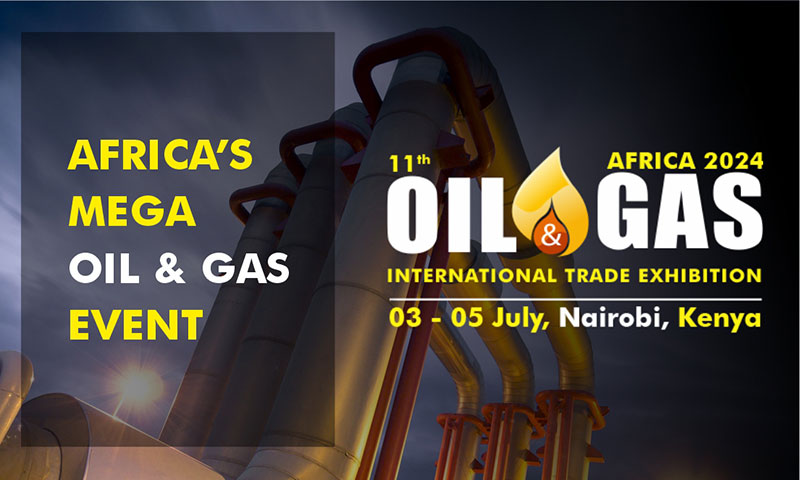

Kenya- Total’s Entry into Oil and Gas
Posted on :Monday , 12th February 2018
Kenya and East Africa as a whole have followed a long path in the exploration of oil and gas resources. On the back of soaring crude oil prices between 2004 and 2014, there was a rush of exploration interest in the region.
As promising exploration results were announced, the Big Oil players started to move in. Statoil, Shell (also in Kenya),
Petrobras and ExxonMobil are in Tanzania while ENI is established in Mozambique. This confirms this region's reputation as a promising new frontier.
Large onshore oil finds in Uganda in 2006, followed six years later by discoveries in Kenya created a great deal of optimism over the region’s prospect. Coupled with huge gas discoveries in Mozambique and offshore Tanzania, the region was emerging as a true frontier in the upstream industry. The world took notice, and the oil and gas majors were not to be left behind.
The recent announcement that Total, an oil major, that it will take up 25 percent of Turkana oilfields, and also their commitment to the construction of the Lokichar- Lamu crude oil pipeline is welcome but also surprising given what has transpired over the last couple of years.
From a regional economic perspective, there was a straightforward solution to export Kenya’s and Uganda’s oil resources.
Considering that mainland Tanzania does not have any oil discoveries, a joint pipeline from Lake Albert in Uganda, linked to Turkana oilfields on Kenya and onward to Lamu would allow the region to take to market newly discovered resources.
It is reported that Total exerted their influence to prioritise a new crude oil pipeline from Hoima in Uganda to Tanga in Tanzania, much to Kenya’s government chagrin.
However, it seems that Total has had a long-term plan in place in consolidating their interests in the East Africa region, in both upstream and downstream operations. In recent years, the company has acquired Elf Oil Kenya, Caltex (Chevron Kenya Ltd and Gulf Africa Petroleum Corporation. Main assets being logistic terminals and a retail network of service stations
With this development now, the company will find itself in an uncomfortable situation, having convinced Uganda to short-change Kenya on the route of its export pipeline. Something that did not go down well with most Kenyans, including people in the corridors of power. I hope they will deliver on the promise they just made to President Uhuru Kenyatta.
Total is not new in Kenya. They have been present in the country since 1955. As recent as 2011, their its Total E&P Kenya BV, it acquired interests in five offshore exploration blocks in the Lamu basin which included blocks L5, L7, L11a, L11b, and L12. This was part of their larger strategy which consisted acquiring large stakes in emerging frontier regions.
As far as investments were concerned, East Africa took up nearly 32 percent of Africa’s oil and gas investments. Then came the fall in global oil prices in mid-2014, and the oil rush lost momentum. This served to deflate expectations for the region’s potential and slowed progress towards the development of crude oil pipelines.
During this period, Total moved to solidify its regional petroleum interests by acquiring Maersk Oil’s significant upstream assets in Kenya. In line with their global strategy, they also acquired the portfolio of Engie’s upstream liquefied natural gas (LNG) assets.
The two crude oil pipelines in East Africa are important in de-risking new exploration areas in the region, and with rising global prices, this would also incentivize exploration activities. This would work in Total’s favor given they have interests in the northeastern DRC where they did seismic work in 2016.
Please Select an Option
-
Exhibiting
-
Visiting
-
Information

Expogroup
Expogroup is a full service exhibition organiser with over 28 Years experience in International trade exhibitions. Our current portfolio includes 28 annual exhibitions from a diverse range of industries being held across the Middle East & Africa.
EXPOGROUP © 2024 | Privacy policy
